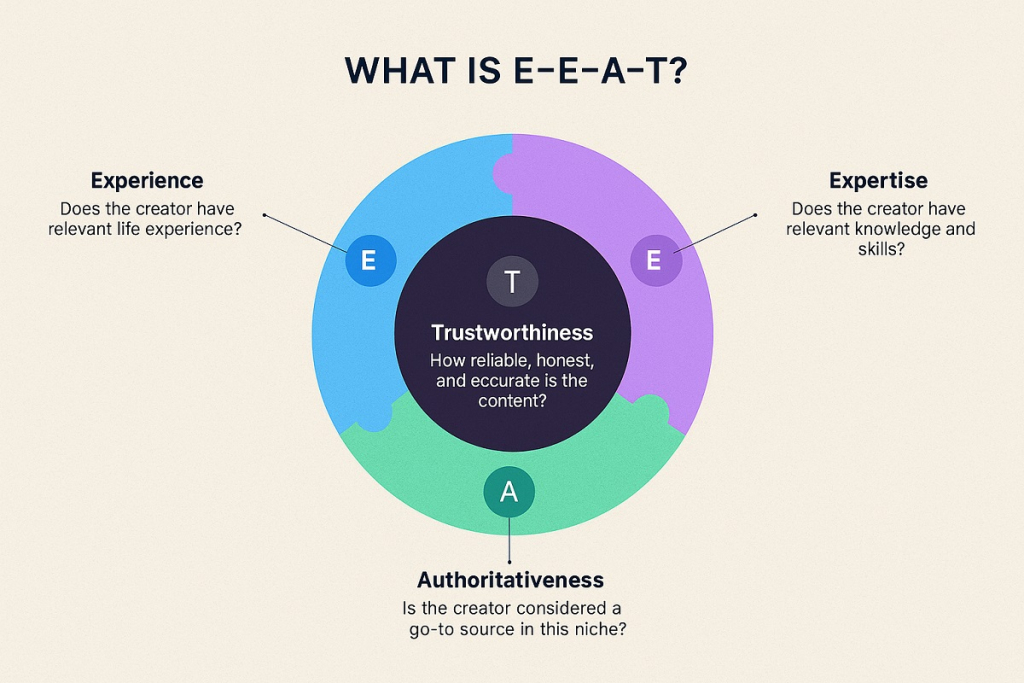
There was a time when SEO was a secret code. The keyword stuffing game, the meta tag hunt, the first page on Google, and it is so difficult to see. The idea used to be so straightforward years ago: learn the rules of the game of the search engines and play more successfully than your competitors. But the game has changed. Engineers are not rewriting the rulebook; it is being rewritten by oracles, Artificial Intelligence (AI), and its most brilliant child, Generative Search.
The time when a machine optimizes something is gone. Now, we are at the stage of optimization of an intelligent conversational partner, which recognizes the context, purpose, and subtler peculiarities of the language of men.
The search optimization process is an account of greater refinement:
This was the time of technical tricks. Keywords density, the quantity of the backlinks, and the manipulation of such early algorithms as PageRank became the keys to success. It was the wild west.
Google Penguin, Hummingbird, and Panda updates had changed everything. The emphasis was laid on the quality of content, user experience, and authority. Keywords were a signal, rather than the signal—the what of the query began to be equally important as the why.
It is our time of E-E-A-T (Experience, Expertise, Authoritativeness, Trustworthiness) and AI. A list of blue links no longer searches, but rather the search is a direct/contextual response. The most significant change has ever been the emergence of AI-driven search engines such as the Search Generative Experience (SGE) on Google and Perplexity.
The appearance of generative AI in search is not a trivial update; it is a tsunami wave. Its effects are already being experienced:
In the case of a contemporary firm, this transition involves some combination of classical values and emerging, adaptive courses of action.
The AI of Google views the world as made up of objects (people, places, things), their interactions. The aim that you are hoping to accomplish is to build your brand name as the ultimate player in your niche. This implies making a knowledge graph of your brand as dense as possible, which would indicate a degree of expertise to the algorithm.
Maximize on how individuals speak rather than what they type. This includes:
The so-called Experience is an addition to E-E-A-T as a direct reaction to substandard AI content. Google would like to rank the content written by individuals who have had first-hand and real-life experience.

Text is not all that is being searched with AI, but it makes syntheses between information of different forms. The new content strategy should be multi-modal:
The dystopian world of the future of SEO does not involve humans being usurped. It is a more challenging, more intelligent environment in which the worth of true competence, exceptional experience, and human relations is more than ever.
These are the companies that will prevail and abandon their attempts to position and manipulate the algorithm and instead create a digital presence so authoritative, dependable, and useful that the AI and the human user view it as the authoritative solution. The oracle is hearing; it is high time to speak in a really human voice.
Generative search is the term used when you search for anything, and the AI gives you a direct answer. Right now, people are asking questions and getting results quickly using major AI platforms. Understanding context and creating a better conversational experience is the key to success for an AI.
No, traditional SEO is still functional, but the methods have changed a bit. Prioritize the E-E-A-T method to optimize and build trust online.
There are multiple aspects that an AI can’t do like, giving a firsthand experience or talking to real people, finding new stories. Focus on those things, and it will help you prepare better content than AI.
You can use AI as an assistant, but don’t over-reliance on them. In most cases, AI will produce copied content that lacks originality and credibility. If you want to have some depth in your website content, better find a good writer.
Establishing your brand in the market is the most important aspect for any business. People must trust you and find it easy to do business. Prepare content to clarify their needs and take some time to build trust in the market.